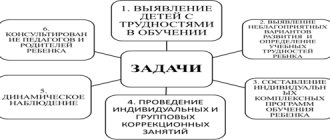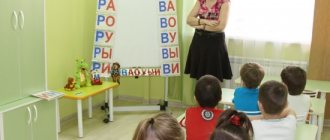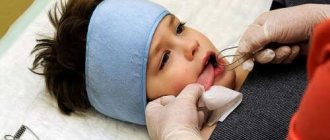Photo source gpointstudio/freepik
A defectologist is a specialist who works with children who have mental or physical disabilities. A person in this profession has knowledge of methods for adapting children to the environment, and is engaged in their training and education.
Areas of work of a defectologist
A defectologist works with problem children, studies their shortcomings, educates them, and helps them adapt to environmental conditions. The task of a defectologist is to identify developmental anomalies, including their origin, patterns and features, and based on the information obtained, correction methods are developed.
The profession of “defectologist” requires knowledge in many areas: psychology, neurology, pedagogy, etc. A specialist in this profile diagnoses the child’s abilities and level of development. The result of the work of a defectologist is the socialization and inclusion of children with developmental disabilities in the world around them. Along with this, a specialist in this profile conducts conversations with parents, providing them with assistance in raising and understanding their child.
Thus, the job responsibilities of a defectologist are:
- organizing and conducting educational and correctional work with children with developmental disabilities;
- examination of children to determine the severity of the existing defect;
- conducting group and individual classes to restore impaired functions;
- consulting parents on the use of methods and techniques to help problem children;
- records management.
A defectologist is a socially significant specialty that requires deep professional knowledge and a desire to help children.
Defectologist in kindergarten
Some parents, fortunately, do not even know why a defectologist is needed in kindergarten . And parents of children with developmental disabilities had to come into close contact with the science of defectology and get acquainted with specialists in this field.
Defectology is a science that combines medicine, psychology and pedagogy, as evidenced by the list of defectology specialties, of which there are several. A teacher of the deaf who teaches children with hearing problems - from hard of hearing to completely deaf. A teacher-oligophrenopedagogue who works with children with mental development problems. A typhoid teacher who works with children who have vision problems. A preschool teacher-defectologist and a speech therapist are multidisciplinary specialists who work with all types of speech disorders.
In a broad sense, a defectologist is a specialist who studies, trains, educates and socializes children with developmental disabilities. In a narrow sense, a defectologist is a correctional teacher.
What functions does a defectologist perform in a kindergarten ? Firstly, a defectologist in a kindergarten conducts a complete and detailed examination of each child for the characteristics of his speech, cognitive and social development, during which he determines the child’s ability to learn and play, which helps him organize work with this child so that compensate and correct identified developmental deficiencies as much as possible.
When examining a defectologist in a kindergarten , first of all, he carefully studies the medical record, which helps him understand the nature of the child’s developmental deficiency and its causes. If a child is transferred from another kindergarten, be sure to familiarize yourself with the pedagogical characteristics. When conducting an examination, the main role is given to the defectologist, then a psychologist, the head of physical education, and the music director are involved in the examination.
Secondly, the defectologist increases the cognitive activity of children and at the same time develops basic mental processes such as thinking, imagination, attention, curiosity, memory, perception.
Thirdly, the activity of a defectologist is aimed at developing children’s communicative activity and the development of play ability, which is the main activity for children of this age.
The choice of disciplines taught by a defectologist in kindergarten is selected taking into account the characteristics of each child individually. However, there are also general compulsory disciplines:
— Sensory development;
— Hygiene and self-care;
— Game training and player correction. These classes are needed because not all children know how to play or their development of play ability does not correspond to their age;
— Development of speech through familiarization with the outside world. During these classes, children learn to see objects and phenomena that surround them in life. At the same time, their horizons and vocabulary expand, and connected speech is formed;
- Literacy training. There is a so-called pre-letter period that all children need to go through before they begin to learn letters and numbers. During this period, children learn to distinguish sounds by ear, the sequence of sounds in a word, which contributes to the child’s development of reading and writing skills;
— Development of simple mathematical concepts of quantity, space and time;
— Creative activities : drawing, modeling, design. In these classes, the child gains an understanding of space, colors and shapes of various objects, learns to act according to a certain pattern, and coordinates the movements of his hands;
— Preparation for school;
Each lesson conducted by a teacher-defectologist in kindergarten represents a whole complex of cognitive activity, motor skills, speech, music, as well as various types of gymnastics.
In classes, the defectologist uses toys, pictures, books, a tape recorder with audio recordings, musical instruments and a lot of various teaching aids. A speech pathologist in kindergarten regularly conducts not only frontal (classes with the whole group), but also subgroup and individual classes.
According to statistics, every second child has speech disorders; many children find it difficult to cope with the pronunciation of new sounds. Therefore, the most popular defectological specialty is a speech pathologist. Parents need to take care in advance about the development of their child’s speech, especially preschool age. An experienced speech pathologist in kindergarten will help solve many problems related to the pronunciation of sounds and correction of the child’s speech.
Classes of a speech pathologist-speech therapist are aimed at:
- speech formation in children who do not speak at 2-3 years of age;
— correction of speech defects;
- treatment of stuttering;
- development of not only correct, but also beautiful speech;
— prevention and correction of written speech disorders;
— development in children with speech pathology, optical-spatial representations and motor functions;
- prevention and correction: sound pronunciation, general and phonetic-phonemic underdevelopment of speech, writing and reading disorders.
Of course, not all children need the services of a speech pathologist. However, for children with intellectual disabilities or delayed mental, psychomotor and sensory development, a defectologist in kindergarten is simply necessary. And parents need to remember that the child spends most of his time not in kindergarten, but in the family. Therefore, the speech pathologist’s sessions with the child alone will not give the same result that can be obtained through long-term and focused work of a specialist together with parents.
In addition to working with the child, the defectologist in the kindergarten provides consultations to parents, during which parents learn the necessary techniques for teaching their child. So, dear parents, know that a defectologist can do a lot for your child, but he cannot replace you in everyday life. Your child’s happy smile will be grateful for your patience, care and love!
| Consultations and classes with a defectologist. Consultations and individual classes with a defectologist are held in the nursery. A defectologist is a teacher who will help your child learn everything or almost everything that he should know by age, but did not have time due to the characteristics of his development. A defectologist will help compensate for deficiencies in the child’s development. Classes are conducted individually. The cost of one lesson lasting 50 minutes is 800 rubles. What parents need to know about such a specialist as a defectologist Defectology is the science of the psychophysiological characteristics of the development of children with mental and physical disabilities, about the patterns of their upbringing, education and training. Defectologist is a fairly broad concept. Defectologists are teachers who specialize in working with children with various developmental disabilities. Recently, the term “defectologist” has begun to be replaced by the term “correctional teacher,” but the essence has not changed. A speech pathologist and teacher of the deaf works with deaf, hard of hearing, late-deafened and deaf-mute children. A defectologist-typhlopedagogue works with blind, visually impaired, and late-blind children. A speech pathologist works with children who have problems with speech development. A speech therapist corrects and eliminates speech development deficiencies, and in the absence of speech, stimulates its development. A speech therapist also helps restore speech to an adult who has suffered a stroke or injury. A defectologist-oligophrenopedagogue works with children of preschool and school age who have mental retardation, oligophrenia (mental retardation), cerebral palsy, autism, as well as a complex structure of the defect (the presence of several developmental defects at the same time). A defectologist-oligophrenopedagogue provides assistance to children with normal intelligence who have physical, psycho-emotional disorders, and learning difficulties at school. All of these specialists are not doctors, although defectology is at the intersection of medicine and pedagogy. At defectology faculties, lectures are required on a number of medical subjects. But still, defectologists have a higher specialized pedagogical education (defectology department of a pedagogical university). The task of a defectologist is to correct and compensate for the child’s developmental deviations. First of all, the specialist carefully studies the severity of the defect and diagnoses higher mental functions (thinking, attention, memory, speech, perception, imagination). Depending on the specialization of the defectologist, he focuses on hearing, vision, speech, motor functions, mental operations, features of the emotional-volitional sphere, etc. After diagnosis, the defectologist needs to decide on the directions of correctional work, select the necessary methods and techniques, and develop a long-term plan for corrective action. Special learning conditions are created for the child, therapeutic and health measures are selected, and if necessary, consultations with other specialists (neurologist, psychiatrist, otolaryngologist, orthopedist, ophthalmologist, orthodontist) are recommended. In his work, the defectologist actively uses a variety of techniques, games, and exercises. As a rule, methods and didactic material are selected individually for the child, based on his problem and capabilities. The duration of work with a child is determined by the severity of the defect and the dynamics in the correction process. Even after several lessons, it is sometimes difficult to say how many will be needed in total, and even more so to give a 100% guarantee that the defect will be eliminated. Each case is individual, and sometimes we can only talk about partial compensation for the defect. A defectologist-oligophrenopedagogue knows methods of correction and development of children both with intellectual disabilities and children with normal intelligence. It is not uncommon for preschool children with normal intelligence to have delayed speech development, motor awkwardness, behavioral characteristics, restlessness, inattention, poor memory, etc. A speech pathologist can help solve these problems. The teacher will tell parents how to develop the child’s intellectual abilities, what kind of workload the baby needs, how to expand his vocabulary, improve pronunciation, learn to master his own speech and express his thoughts. A defectologist can diagnose a child’s readiness for school and diagnose the assimilation of program material. The help of a speech pathologist is urgently needed for primary school students suffering from dysgraphia and dyslexia. If you have been advised to study with a defectologist, you do not need to be afraid of this word. A defectologist sees the child’s problem and tries to correct it as much as possible using various techniques. The main areas of work of a defectologist-oligophrenopedagogist: Development and correction of attention · Voluntary and involuntary attention · Volume of attention · Sustainability of attention · Distribution of attention · Switching of attention Development and correction of perception · Visual perception · Auditory perception · Tactile perception · Recognition and naming of objects (position in space , size, color, size, shape, etc.) Development and correction of memory · Memorizing, storing, reproducing information · Verbal (verbal) memory · Figurative, visual (imagination) memory · Motor (motor) memory · Emotional memory · Short-term memory · Long-term memory · Working memory · Reproductive memory · Voluntary memory · Involuntary memory Development and correction of thinking · Types of thinking: visual-effective, visual-figurative, verbal-logical thinking · Thinking operations: analysis, synthesis, comparison, generalization · Forms of thinking : concept, judgment, inference Development and correction of speech · Oral and written speech · Regulating, planning, analyzing function of speech · Phonetic side of speech · Grammatical side of speech · Lexical side of speech · Intonation-expressive side of speech · Dictionary (active and passive) · Syntactic structure (sentence) · Dialogue and monologue speech · Correct pronunciation Development and correction of motor skills · Gross and fine motor skills · Coordination of movements (voluntariness and purposefulness of movements) · Spatial orientation · Maintaining balance · Speed of motor reactions Development and correction of the emotional-volitional sphere · Ability to express your feelings · Adequate assessment of your own and others' actions · Self-control skills · Perseverance and endurance |
| Children's Center Stupenki © 2002 — 2011 |
A defectologist is a teacher who will help your child learn everything that he should know by age and due to the characteristics of his development. A defectologist helps to compensate as much as possible for deficiencies in the child’s development.
In his work, the defectologist uses a variety of techniques, games, and exercises. As a rule, didactic material is selected individually for the child, based on his problems and capabilities.
A defectologist knows methods of correction and development of children, both with disabilities and children with normal intelligence. It is not uncommon for preschoolers with normal intelligence to have motor clumsiness, behavioral characteristics, restlessness, inattention, poor memory, etc. A defectologist, of course, can help solve these problems. The teacher will tell parents how to develop the child’s intellectual abilities, what kind of workload the baby needs, how to expand his vocabulary, learn to master his own speech and express his thoughts.
An experienced defectologist is able to quickly establish contact with a child and maintain a friendly, homely atmosphere in the classroom.
In this regard, the work of a defectologist is primarily aimed at:
· sensory development: in classes the child masters ideas about the size, color and shape of objects;
· teaching games: for such children it is necessary to organize special games that help them “advance” in development;
· development of elementary mathematical concepts (quantitative, spatial, temporal, counting skills);
· familiarization with the outside world and speech development;
· development of general and fine motor skills;
· development of cognitive activity and basic mental processes in children (perception, attention, memory, thinking, etc.).
It is important to know! Classes conducted with a defectologist teacher at the same time require constant and focused collaboration between the teacher and parents. Since the child spends all his time in the family, and only a small number of hours with the defectologist.
That is why counseling parents and teaching them techniques that contribute to the normal development of the child is also an integral part of the work of a defectologist, which helps to successfully achieve the desired result in a shorter time.
Dear parents, you must understand that a defectologist can do a lot for your child, but he cannot replace you in everyday life.
Requirements for a defectologist
Photo source prostooleh/freepik
Among the professional requirements for a defectologist are the following:
- availability of higher professional education;
- work experience in the specialty;
- knowledge of developmental and special pedagogy and psychology, anatomical-physiological and clinical defectology;
- knowledge of methods and techniques for preventing and correcting developmental disorders;
- the desire for professional growth and familiarity with the latest discoveries in one’s field (attending advanced training courses, master classes, seminars, conferences, reading professional literature, etc.).
Not everyone is capable of working as a defectologist. If you have a diploma and professional knowledge, a specialist requires work experience and the possession of certain character qualities.
A defectologist is a specialist who works with children who have psychological or physical developmental disabilities. This profession is complex, requiring the employee to have deep knowledge and certain personal qualities. To work as a defectologist, you need to obtain a higher education. The job responsibilities of a specialist in this profile include examining children, identifying deficiencies, searching for the cause of the disease, helping them adapt to the outside world, etc.
A specialist in the field of defectology deals with pedagogy. That is, a defectologist specializes in educational, educational and support processes when working with special children. A defectologist is contacted if any developmental abnormalities are detected in a child. Not everyone understands what exactly the work of a defectologist is, so this point should be discussed separately.
The role of a defectologist in kindergarten
According to the state standard, every kindergarten must have a full-time defectologist. The need for this measure is due to the fact that it is during the preschool period that the main process of child development occurs. The task of a defectologist in a kindergarten is to conduct scheduled and unscheduled examinations of all pupils for deviations, defects and developmental disorders. Many defects are invisible to ordinary educators. Only a defectologist can detect them due to his professional knowledge and relevant experience. The earlier developmental abnormalities are detected in a child, the more effective measures can be taken to correct them. This will significantly simplify the life of a special child and help him adapt comfortably to the children's team. A defectologist is not a doctor, so he does not make a diagnosis, but sends the baby for a medical examination, during which a specific developmental disorder is identified. Based on the diagnosis, the defectologist selects a correction method for the child and conducts appropriate classes.
Work of a defectologist with special children
Children who have developmental delays need a special approach and additional assistance provided by a defectologist. In a specialized center, you can attend individual classes with a defectologist, which are more effective and beneficial for the child than group classes. A defectologist specializes in increasing a child’s cognitive activity. This allows for the development of various mental functions that have not developed properly on their own. The result of training with a defectologist is developed cognitive processes.
The benefits of working with a speech pathologist
Children at an early age learn about the world around them through play. They have a natural curiosity. Children with developmental delays lack this interest. A defectologist helps develop interest and curiosity so that the child can fully develop and study the processes that surround him.
What education does a defectologist need?
It is possible to obtain education as a defectologist at pedagogical universities (specialty code 44.03.03). During the training process, the student learns the basics of pedagogy, methods of providing psychological and medical assistance, etc. Therefore, it can be argued that a defectologist has a pedagogical education with a medical bias.
The profession of a defectologist is divided into several narrow specialties, such as:
- teacher of the deaf (works with children with hearing impairments);
- typhlopedagogue (works with children with visual impairments);
- teacher of deafness (works with deaf-blind children);
- oligophrenopedagogue (works with mentally retarded children);
- speech pathologist (works with children with speech disorders and defects), etc.
Goals and objectives
A correctional psychologist-defectologist performs the following tasks:
- study of the child’s level of intelligence, characteristics of physical and mental development;
- development of an individual training program;
- development of memory, thinking, stimulation of brain activity;
- development of communication skills, elimination of stiffness, embarrassment;
- elimination of speech therapy problems, assistance in producing sounds;
- development of fine and gross motor skills;
- assistance in socializing the child, accepting the shortcomings of the body and mind;
- consultation of parents on issues of raising and educating a child.
The main goal of the specialist is to eliminate psychological barriers to intellectual development. To achieve this, joint work with parents is organized, which allows for a comprehensive approach to the problem.
To fulfill the assigned tasks, the teacher must be able to:
- quickly find a common language with the child, form trusting relationships with patients;
- find the patient’s weaknesses and causes of psychological disorders;
- teach reading and writing in non-traditional ways;
- work with children of different ages.
The work is difficult, but interesting. This profession is suitable only for those who sincerely love children and are ready to put up with the pranks and whims of little patients.
There are many other areas of work for psychologists.
Personal qualities of a defectologist
To work with abnormal children and perform professional duties, a defectologist must have certain personal qualities, which include:
- patience, balance, stress resistance;
- responsibility;
- ability to work with difficult children;
- love for children and your profession;
- communication skills.
When working with a child, a defectologist must see his pupil as a full-fledged person, show interest in everyone, observe, identify the causes of deviations, try to provide help, prevent possible undesirable consequences, etc.
What is the job of a speech pathologist?
While working in a secondary school, I encountered a problem that prompted me to publish this material. In “Nobody knows who a defectologist is, but everyone knows who he should work with.” Unfortunately, this is not just about parents. When it comes to a teacher-defectologist, many parents panic, some begin to be indignant - “What kind of defectologist? I have a normal child!” I have also heard the phrase that a defectologist is a teacher who teaches the mentally retarded. But teachers who are competent in this matter would be happy to send the child to classes with a defectologist!
So who is this defectologist?
A defectologist is a specialist who studies, trains, educates and socializes children with disabilities. A speech pathologist also works with children who have difficulty mastering the curriculum. He can also work with children who, for various reasons, do not master the general education curriculum a little or have difficulty learning. These are mainly primary school students. The work of a teacher-defectologist is the mental development of the child and the development of his cognitive abilities.
The profession of a defectologist is at the intersection of medicine and pedagogy and includes many areas: teacher of the deaf (works with children with hearing impairments), oligophrenopedagogist (with mental retardation), typhlopedagogist (with visual impairments), speech therapist (with speech impairments).
Tasks of a speech pathologist teacher
The work of a defectologist begins with diagnosis. Diagnostics are carried out only at the request of teachers and parents. I can't come into a classroom and just take one of the children for a diagnosis. Diagnosis requires justification.
In parallel with the diagnosis, the difficulties and problems that may arise in the child are identified if the disorder is not corrected in a timely manner.
Based on the diagnostics performed and the identification of the child’s immediate developmental zone, a correctional and developmental program is drawn up for each child or group of children.
Then the correction process itself is carried out, which is carried out in group, subgroup and individual classes.
In parallel with the correction, dynamic observation of the child’s entire educational process is carried out, and not only in defectology classes.
There is also consultation between teachers and parents on issues of interest.
The goal of a defectologist’s work is to correct developmental gaps.
The work of a teacher-defectologist contains several areas. Corrective work is divided into blocks.
Blocks of correctional work
1 block
“Development of psychomotor and sensory processes.” This is a very large block, the main focus of which is the development of fine motor skills. After all, as you know, if fine motor skills are not developed, difficulties arise with writing; if there are difficulties with writing, then there are difficulties with coherent speech.
2 block
"Formation of spatiotemporal relations." Here we study not only such concepts as “right and left”, but also such as “upper right corner”, “lower left corner”, “2-dimensional and 3-dimensional space”. If this area is underdeveloped, problems with reading and writing may arise.
3 block
"Mental development". This is also a very large direction in which higher mental functions, such as attention, perception, memory, and thinking, are corrected.
4 block
"Normalization of leading activities of age." As you know, the leading activity of students during their age is learning. Unfortunately, not all children have it as a leader, especially among elementary school students and students enrolled in correctional programs of types VII and VIII. For them, as a rule, for a very long time the leading activity of their age is gaming.
5 block
“Formation of ideas about objects and phenomena.” In this direction, those problems that arose in connection with gaps in previous development are corrected. For example, a child did not go to kindergarten, but at this age concepts such as color, shape, size, etc. are formed. This is a very important area, because it is a prerequisite for the development of mathematical skills.
6 block
“Enrichment of vocabulary and development of coherent speech.” The name of this direction speaks for itself and, of course, it applies more to speech therapists, but a defectologist should not ignore it.
7 block
“Readiness to perceive educational material.” This block is aimed primarily at 1st grade students. It helps them prepare to learn a lot of new educational material. As a result of correction in this area, students develop the knowledge and skills that help them master the educational material.
A special education teacher does not teach children mathematics or the Russian language, although these classes are carried out in the correctional process. On mine, first of all, I correct the cause of the difficulty that has arisen, as a result of which the impaired functions are corrected. For example, due to unformed spatial concepts, difficulties in writing and reading result. They can be compensated for both by work aimed directly at developing reading and writing, which is what the teacher does, as well as by the development of spatial concepts in the child, which is what the teacher-defectologist does.
Defectologist's office
My defectology classes are very interesting for children, because in my classes they learn through play. The range of developmental aids is so large that children, while playing seemingly simple games with great interest, do not notice how they are learning something. Each lesson is a whole complex for the development of cognitive activity, motor skills, speech, and phonetic hearing.
The classes use toys, paintings, a computer, sand, cards, pencils, paints and many other various teaching materials.
Here are some examples of activities
- Lacing. Working with ordinary laces, the child develops not only fine motor skills, but also thinking, coherent speech, and perseverance.
- Coloring pages. At first glance, a coloring book is just a coloring book, but it is not an ordinary one, it has mathematical examples; before starting to color, the child must do a mathematical calculation in his mind, then choose a given color and only after that start coloring.
- Cubes. Everyone knows such a toy as cubes, only our cubes are unusual, each side has its own color, or even two. The kids' task is to make a pattern. To complete this task, the child activates visual perception, imaginative thinking, and imagination.
- Sand. This is one of the favorite activities of all children; no one will refuse to put their hands in the warm sand, bury their eyes and imagine themselves on the coast... On the sand you can draw with your fingers, lay out patterns of beads, play with small toys.
- Drawing with water droplets. This activity calms children, charges them with positive emotions, and is simply very beautiful.
In conclusion, I would like to wish parents and teachers patience, success, and wisdom in raising your children. Well, if you have problems, you can seek help from specialists who understand this issue: defectologists, speech therapists and psychologists.
Finding a job as a speech pathologist (career growth)
In Russia, the work of a defectologist is in demand and highly paid. This is due to the fact that many modern children have problems adapting to environmental conditions (changes), cannot communicate with peers, have problems with speech and learning material, physical disabilities, etc. A specialist can provide private services, work in public boarding schools, correctional and rehabilitation centers, kindergartens and preschool educational institutions, etc.
When to contact a speech pathologist
Psychologists point out problems with a child’s development during a routine examination and admission to kindergarten. Most often, children are diagnosed with delayed speech development. It is associated with neurological diseases, but psychological causes are also possible.
A pediatric speech pathologist provides consultations on the following issues.
Difficulty with movements.
There are two possible options: hyperactivity and hypoactivity. In the first case, the child is constantly on the move, waving his arms and legs even during rest, and has difficulty falling asleep. With hypoactivity, on the contrary, the child moves little, apathetic with confirmed physical health and good health.
Inability to play games.
By the age of three, a child should learn to play independently with toys and other children. If the baby freaks out, screams during play, and cannot concentrate on one activity for 10 minutes or more, then the help of a specialist is needed.
Aggressive behavior.
If a child over 3 years old behaves aggressively, refusing to play and study, then he has psychological problems.
Slow mental development.
When assessing intellectual development, you need to rely on average frameworks, allowing your child to develop a little more slowly. Specialist help is required in case of serious deviations from the recommended norm. For example, if at the age of 5 a child does not know the names of flowers or animals, it is difficult to remember the names of loved ones.
Slow speech development.
It is worth contacting a defectologist if the child refuses to answer the questions asked or has a low vocabulary.
It is difficult for parents to assess the development of their own children, so regular examinations by a neurologist and psychologist are recommended for timely correction.
According to generally accepted standards, a speech therapist or defectologist-psychologist is required in the following cases:
- at 7 months the baby does not respond to speech addressed to him, does not take toys;
- does not “babble” per year;
- at 2.5 years old does not know simple words, cannot make sentences of 2-3 words;
- at 3 years old, saliva flows, there are problems with articulation;
- at 5 years old does not make a sentence;
- stutters;
- is lagging behind in mental development, lacks the desire to learn;
- has diseases of the psyche or nervous system;
- has hearing or vision problems.
Many problems can only be solved by a neurologist. But even with confirmed neurological problems, a consultation with a defectologist will not hurt.
Defectologist salary
Photo source prostooleh/freepik
The salary of a speech pathologist in Russia depends on the region of residence and place of work. Thus, in government institutions, the salary of a specialist in this profile can be 15-20 thousand rubles, in Moscow and St. Petersburg - 35-60 thousand rubles. Work in private institutions (including the provision of private professional services) pays more. An employee can receive up to 80 thousand rubles per month. and higher (depending on job responsibilities).
Features of the profession
The specialist performs the duties of a psychologist and defectologist. It is important not only to correct the child’s intellectual abilities, but also to find the cause of their occurrence, which are conventionally divided into two types.
- Physical: congenital pathologies of the brain, nervous system, hearing, vision.
- Psychological: problems associated with upbringing, psychological trauma.
A feature of defectology is that all children are subject to correction, regardless of the cause of the existing disorders. For severe pathologies that cannot be treated, maintenance therapy is carried out.
In his work, a defectologist works closely with a psychologist. To increase the effectiveness of classes and the attractiveness of their candidacy on the labor market, teachers receive an additional specialty as a psychologist. This allows them to better understand children and create individual programs depending on the needs and developmental characteristics of the child.
Only a stress-resistant person who knows how to differentiate between work and personal life can work as a speech-language pathologist. Often patients are children from disadvantaged families with serious psychological problems. Such a child is difficult to treat and requires special attention and care.










